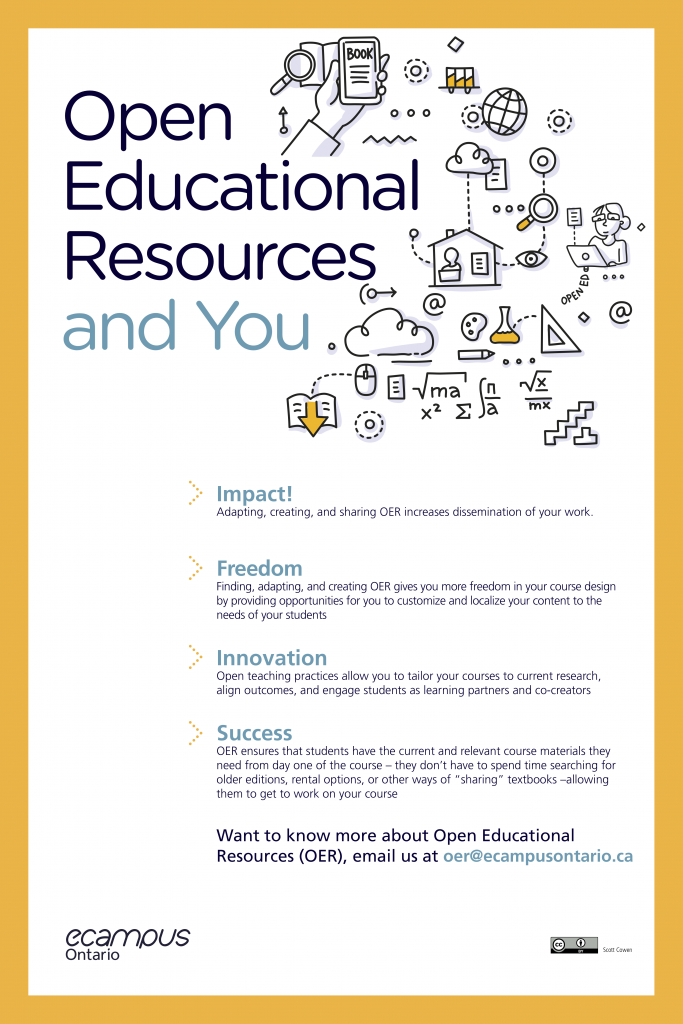1 Open Educational Resources
Definition
The term OER (Open Educational Resources) was first defined by UNESCO in 2002 as “any type of educational materials that are in the public domain or introduced with an open license” and can “range from textbooks to curricula, syllabi, lecture notes, assignments, tests, projects, audio, video and animation.”
Although many people think of OER and Open Education as generally referring to online-only material and courses, this is not the case. Many open textbooks, for example, are also available in hard copy, or can be printed if a user prefers.
The 5 Rs of Openness
OER differ from traditional educational resources in their licensing and permissions. Namely, the “open” aspect of OER can be defined by David Wiley’s 5R Framework.
Retain
the right to make, own, and control copies of the content
Reuse
the right to use the content in a wide range of ways (e.g., in a class, in a study group, on a website, in a video)
Revise
the right to adapt, adjust, modify, or alter the content itself (e.g., translate the content into another language)
Remix
the right to combine the original or revised content with other open content to create something new (e.g., incorporate the content into a mashup)
Redistribute
the right to share copies of the original content, your revisions, or your remixes with others (e.g., give a copy of the content to a friend)
*This material was created by David Wiley and published freely under a Creative Commons Attribution 4.0 license at: http://opencontent.org/blog/archives/3221
Why an OER?
As an OER, the Micro-credential Toolkit and ‘How-To’ Guide will be a living document. This will permit other institutions and organizations to adopt and customize the resource by sharing, adapting, and adding content according to localized needs. Ultimately, this will advanced institutional capacities to develop and deliver micro-credentials in response to industry needs.

Attributions
The chapter as a whole was adapted from Open at Scale: Project Guidelines by P. French used under a CC BY 4.0 international license. Download this book for free at https://ecampusontario.pressbooks.pub/.

